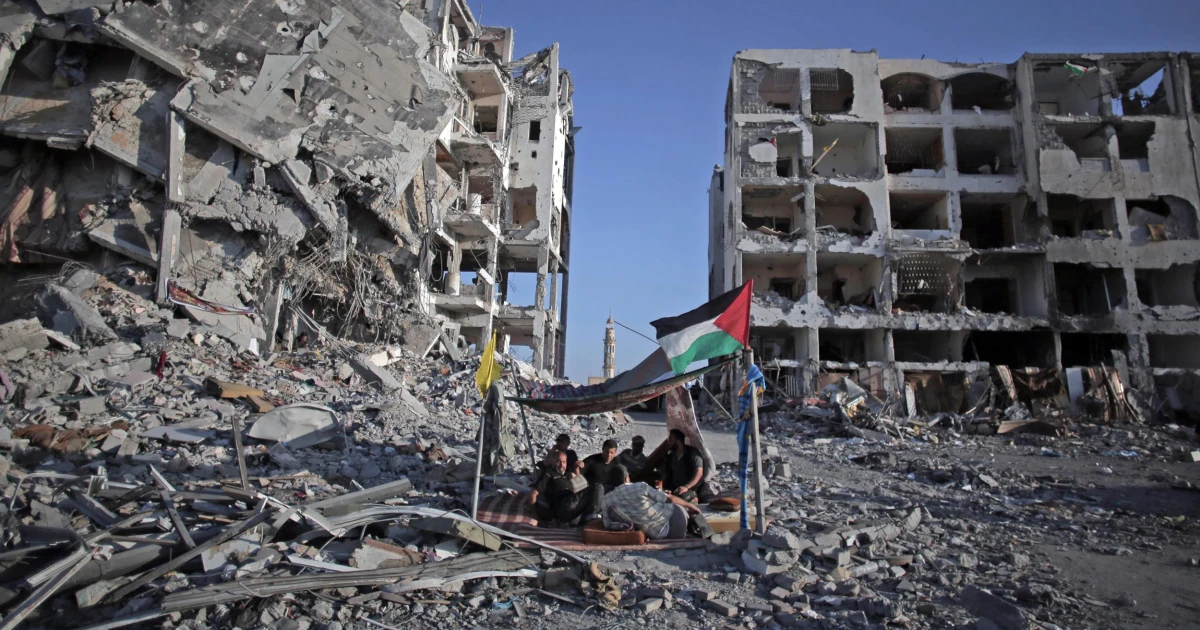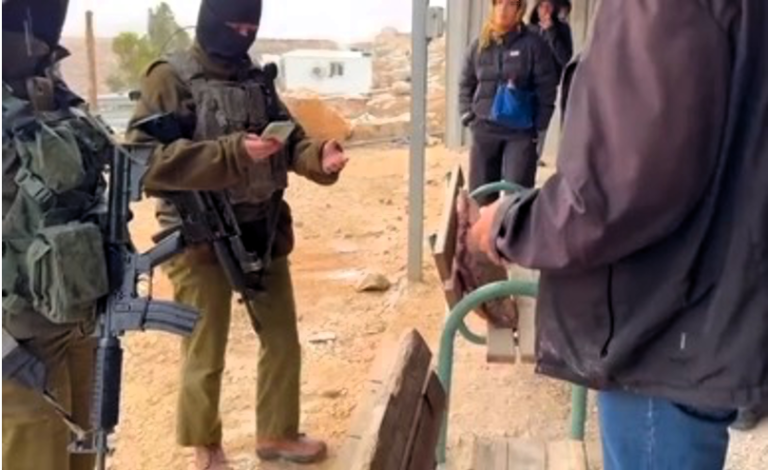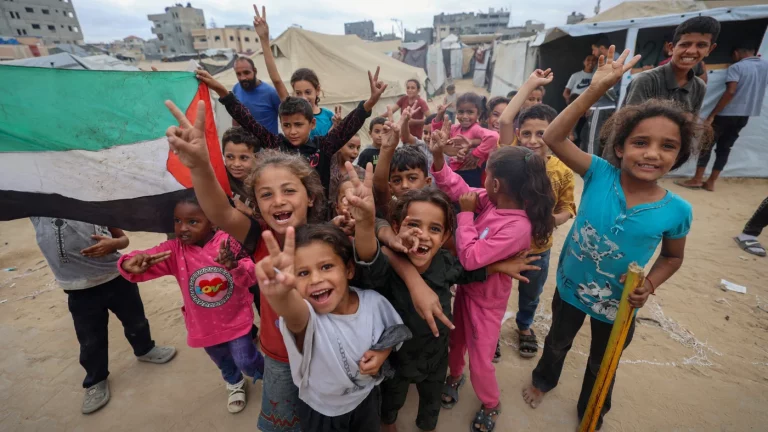
Ending Inhumanity and Impunity to Bring About Self-Determination
For more than 75 years, Palestinians have lived under a system of Israeli dispossession, displacement, and structural repression. Decades of impunity have enabled repeated cycles of violence and widespread human suffering.
The Israeli-Palestinian conflict has roots in the late nineteenth century with the rise of Zionism, a movement seeking a national homeland for Jews in response to persecution in Europe. The territory identified for this homeland was part of the Ottoman Empire, where Palestinian Muslims and communities of Christians and Jews had lived for centuries. The rise of competing nationalisms during World War I, combined with the 1917 Balfour Declaration expressing British support for a national home for the Jewish people in Palestine, reshaped the region. After the fall of the Ottoman Empire, the League of Nations granted Britain a Mandate for Palestine in 1922, which lasted until 1948, when the State of Israel was declared.
The Nakba of 1948, when more than 750,000 Palestinians were expelled or fled their homes, created one of the world’s longest-standing refugee populations. Many of today’s Palestinian refugees trace their origins to these expulsions and their right of return as set out in UN General Assembly Resolution 194. Today’s injustice are tied to these events and the persistent denial of Palestinians’ rights as well as displacement, dehumanization and the absence of accountability for violations of international law.
The current catastrophe
The ongoing catastrophe cannot be understood without recognising that Palestinians in Gaza have lived under Israeli occupation since 1967 and a blockade for more than 17 years. The 7 October 2023 attacks by Hamas and other Palestinian armed groups including the killing of civilians and hostage-taking, prohibited under international law, occurred in a context in which Gaza had already been confined, deprived of their fundamental rights, and subjected to repeated military operations.
The scale of civilian death and destruction over the past two years has no precedent in contemporary times. As of November 2025, conservative estimates place the death toll at more than 69,000 people, including 20,000 children. The real number is presumed to be significantly higher, including indirect deaths caused by the collapse of medical services, starvation, dehydration, untreated disease, trauma, and lack of access to basic services. An unknown number of bodies, including Palestinians and the remains of some Israeli hostages, remain under the rubble.
In September 2025, the UN Independent International Commission of Inquiry concluded that there were reasonable grounds to believe that Israel was committing genocide against Palestinians in Gaza. It also called for unimpeded humanitarian access and an end to the use of starvation as a method of warfare. These findings underscore States’ legal obligations to not only punish but also prevent genocide, war crimes and crimes against humanity.
In the West Bank, including East Jerusalem, illegal settlement expansion, land confiscation, and settler violence have sharply escalated since October 2023. Since then, more than 1,000 Palestinians, including children, were killed by Israeli forces or armed settlers, with many more seriously injured. Homes, crops, and livelihoods have been destroyed. Senior members of the Israeli government openly call for the permanent annexation of Palestinian land.
Leading human rights organisations have described the system of governance in occupied Palestine as apartheid, a conclusion shared by Palestinian and Israeli human rights groups, major international organisations, and UN experts.
A Just Peace the only Solution
A just and sustainable peace requires an end to genocide, occupation, apartheid, forced displacement and deliberate deprivation. Ongoing efforts within and beyond the UN Security Council, including those in November 2025, must include meaningful Palestinian participation to end recurring atrocities and build a future of peace and justice for all.
Since October 2023, UAI has worked with a range of networks and initiatives to advance advocacy on issues directly affecting the safety, dignity and wellbeing of Palestinians, including forced displacement, humanitarian access, and the ongoing absence of accountability. This work has included the drafting of joint NGO statements and the amplification of collective initiatives by human rights and humanitarian organisations.
UAI continues to engage with global networks advocating for a sustained ceasefire, an end to the occupation, and strengthened protection for civilians. Individuals and organisations interested in collaborating with UAI or supporting ongoing initiatives are welcome to reach out by contacting .
-
Humanitarian organisations petition Israeli High Court as closure deadline approaches
The clock is ticking on a large part of the humanitarian response sustaining civilians in theoccupied Palestinian territory. Thirty-seven international…
-
“Travelling in a Dystopian Land: Occupied Palestine” by Alessandro Monsutti.
Having worked for years among refugees, people who fall in the interstices of state protection and need international protection, has…
-
53 International NGOs warn Israel’s recent registration measures will impede critical humanitarian action
International humanitarian organizations operating in the occupied Palestinian territory warn that Israel’s recent registration measures threaten to halt INGO operations…
-
“Low-Gear Genocide”: the Systematic Destruction of Palestinian Life
Based on the presentation of Ubai Aboudi at the UAI General Assembly In his stark and urgent presentation to the…
-
“U.S. Sanctions on Palestinian Human Rights Organizations Erodes International Law”
As organizations committed to civil society and open civic space, we, the undersigned, are gravely concerned by the U.S. government’s…
-
“Welcoming Gaza Ceasefire and marking two years of Forced Displacement”
The announcement of a ceasefire offers a long-overdue moment of relief and hope. However, it must mark the beginning –…
Media Watch
How Israel Is Still Defying the World Court and the UN by Mona Ali Khalil














